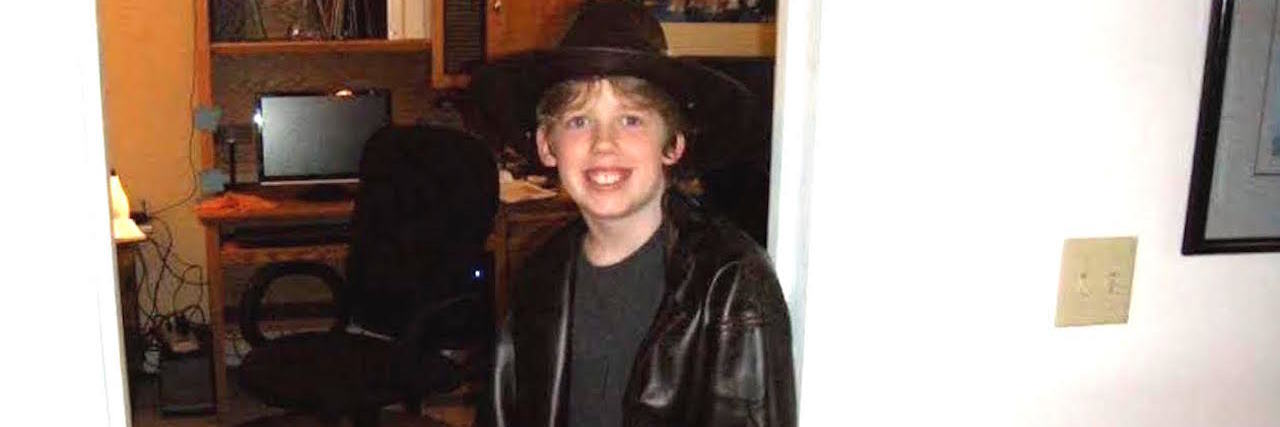Editor’s note: If you experience suicidal thoughts or have lost someone to suicide, the following post could be potentially triggering. You can contact the Crisis Text Line by texting “START” to 741-741.
Now that it’s been more than four months since we lost my son Tom, we are acclimated — although not settled — into our “new normal.” Our loss still seems so fresh even though the calendar shows otherwise. We don’t expect him to walk through the door anymore, and less and less often do I pick up my phone to call or text him. His room is still in transition into an office space with hand-selected mementos of his time with us cut short. There are battery operated candles in the family room which light up for eight hours each evening, a nod to his absence without being a shrine. Most of the gum and Tic-Tac boxes we bought him last Christmas are gone from the cupboard. We still cannot bring ourselves to eat at the dining room table because it feels so large and empty. The spicy Italian sausage is still in the freezer, waiting for a time I can bring myself to cook his favorite pasta sauce. The pool is empty because we could not face opening it up without his enthusiasm and help. The throw pillows Grandma Eileen made him are in the living room instead of on his bed. The family room is filled with sunlight instead of the blinds drawn for Tim and Tom’s optimal gaming darkness. His phone number is still activated and his icon remains in our Netflix account with suggested anime titles for his viewing pleasure. So although his physical presence is gone, there are still shadows of him in so many aspects of our life. As I try to make sense of our lives in “the After,” and as I reflect on our pain and loss, I have come to realize I am really grieving two separate things. There are times I mourn Tom’s absence, and there are times I mourn the way he died. They are separate and distinct feelings.
I am mourning the loss of Tom’s daily presence including his sense of humor, his generous spirit, his helpfulness, his playfulness, his sarcasm and his one raised eyebrow look. I physically ache for him. I miss his half smile. I miss mothering him, even nagging about school and putting his dirty clothes in the laundry room. I miss hugging and encouraging him. I still wait for that supernatural experience when he visits me somehow and lets me know he is free from his pain and loves me. A piece of my heart has been torn out leaving a ragged edged cavity hemorrhaging heavy tears. The crying is cathartic, but only flushes my pain for a while. Soon the tears build up again, leading to another round of sobbing, headaches and heartache.
But I am also mourning the way he died. If it had happened some other way, there might be someone or something to blame. A drunk driver. An arrogant doctor. A terrible ailment. God. But for him to die in this way allows me no one to blame but a dark, lonely and — at least in Tom’s case — invisible illness which calls too many to this end. And the face of that illness has become my son. Someone recently said to me, “Suicide must feel like the easy way out.” I called her out saying, “When you get to the point you are considering suicide, it feels like the only way out. You are hopeless and there does not seem to be another choice.” This silenced her, and for a moment I felt victorious in Tom’s defense. But then I started the cycle again of feeling like his death is my failure, because I could not see the symptoms of his illness and offer my assistance. And if I loved him enough, he would have seen that asking for help was another way out. I mourn my inadequacies as a parent even though so many have told me of my parenting strengths. I mourn for his final moments when he felt this outcome was his only choice.
I cannot blame Tom for what happened, because depression can be silent, stealthy, insidious and fatal. Moving forward, I can see I need to continue to work on letting this go and rather than blame anyone or anything, become a gladiator fighting this beast through educating and supporting others. Perhaps that will help me bring closure to my grief about how he died and move forward with the transition from initial tears to a wistful, knowing, loving smile when I grieve for his absence.
If you or someone you know needs help, visit our suicide prevention resources page.
If you need support right now, call the National Suicide Prevention Lifeline at 1-800-273-8255 or text “START” to 741-741.
We want to hear your story. Become a Mighty contributor here.
Photo via contributor.

